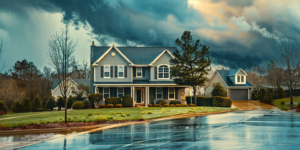Owning rental properties can be a huge boost to your financial portfolio. These investments can really turn a profit, and generate a new source of income, and it can even be easy for beginners to get started. But before you buy your first rental property, there are definitely some things you should know. You should take certain steps before buying your first rental properties, and you should be aware of some risks. Nick Trimble, a real estate investment strategist, is sharing his expert opinion on five things you should know before buying your first rental property.
- Have some parameters before you begin your property search
When you’re looking for properties, you can either search yourself, or bring in an expert to help, such as an agent. Either way, have a general idea of what kind of property you’re looking for. Location and neighborhood are obviously big factors to consider, and if you plan to manage the property yourself, you want to take that into consideration. Other factors to keep in mind when choosing a property, aside from the outright cost, are the taxes, crime rates of the neighborhood, and average rent prices in the area.
- Keep an eye on the rental market
When you’re looking to buy your first rental property, make sure you do some research into the rental listings already available in that area, and the number of vacancies. Keep an eye on these numbers over a span of time, so you have an idea of either how quickly rentals are swept up, or how long they languish on the market for. This will give you a better idea of if you should take the plunge, hold off, or consider another area.
- Calculate how much income you can bring in
According to these loan experts, before you sign the paperwork and buy your first rental property, you’ll want to sit down and do some math. Calculate how much rent you can charge monthly, and how much annual income the property will bring in, to see if it’s a good financial investment.
- Calculate your expense
In addition to calculating the income, take the time to work out the expenses you can expect. There are many possible expenses to keep in mind, such as maintenance costs, any repairs that need to be made, insurance, and taxes. You also want to plan for unplanned emergency costs, such as replacing large appliances unexpectedly. Once you calculate your expected income and expenses, you can determine if this rental property will be profitable for you, and beneficial for your finances.
- Prepare yourself for the pros and cons
There are many good things and difficult things about owning rental properties, and you need to be prepared for it all. The passive income will be great, you’ll be more resistant to flux in the stock market, you can use new tax deductions, and your property could grow in value. On the downside, you may have tricky tenants, or you may have to deal with long periods of vacancies. Buying a rental property is an investment, and it’s important to make sure you’re ready for some ups and downs.
About Nick Trimble
 Nick Trimble is a real estate investment strategist passionate about sharing his expertise with other investors. You can check out his website for more, and keep up with the latest from Nick by following him on Facebook, Instagram, and Twitter.
Nick Trimble is a real estate investment strategist passionate about sharing his expertise with other investors. You can check out his website for more, and keep up with the latest from Nick by following him on Facebook, Instagram, and Twitter.




